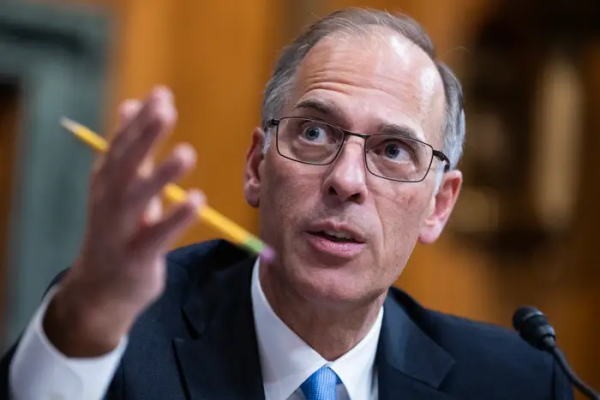Bitcoin in 10 years: Will it dominate the global economy or be replaced by more powerful technology?
Bitcoin may evolve into a reserve asset for central banks and companies in the future, similar to the role of gold in the global financial system.
Predicting the future of Bitcoin is like trying to predict the weather ten years from now - a variety of complex variables interweave and influence, making any clear predictions full of uncertainty. However, by analyzing current trends and potential development directions, we can outline scenarios for how Bitcoin may evolve in the future. For those who are just getting started in the field of Bitcoin, finding a reliable platform to buy Bitcoin with a debit card in the United States is usually the first step to get started. This is not only a bridge from the traditional financial system to the world of digital assets, but also lays the foundation for further understanding and participation in the Bitcoin ecosystem. Next, we will explore the key factors that may affect the future development of Bitcoin.
Bitcoin's market positioning is gradually evolving. Initially, it was mainly seen as a highly volatile speculative asset, but over time, more and more investors have viewed it as a means of value storage, similar to digital gold. This change in perception stems from Bitcoin's limited supply, censorship resistance, and decentralized nature. As global inflationary pressures persist, Bitcoin is gradually gaining recognition as a hedge against inflation, and its appeal may further increase, while widespread adoption by institutional investors will also help consolidate its position as a mainstream asset class.
In the next decade, the institutional adoption rate of Bitcoin is expected to rise significantly, and more and more companies, pension funds and investment companies may include Bitcoin as part of their investment portfolios.
This trend will help improve market stability and liquidity, while promoting further integration of Bitcoin into the mainstream financial system. At the same time, we can foresee that Bitcoin will appear more in traditional financial products, such as Bitcoin mortgages, Bitcoin-based financial derivatives, and a wider range of payment applications. As the application of Bitcoin in the mainstream payment system continues to expand, it may occupy a more important position in the global economic system.
The regulatory environment will become a key variable in the future development of Bitcoin.
As governments continue to improve the regulatory framework for cryptocurrencies, market uncertainty may gradually decrease, thereby enhancing the confidence of institutional investors and companies. Clearer regulatory policies will not only help the stable development of the Bitcoin market, but may also drive more traditional financial institutions to enter this field. In addition, global adoption will also become an important driving factor for Bitcoin's growth. In particular, Bitcoin can serve as a viable financial alternative in economically unstable regions or markets lacking traditional banking services. With the popularity of user-friendly wallets and trading platforms, the threshold for using Bitcoin will be further lowered, promoting the accelerated development of its global application.
Technological progress will play a key role in improving the scalability and practicality of Bitcoin. The application of second-layer expansion solutions such as the Lightning Network will make Bitcoin transactions faster and cheaper, thereby increasing the feasibility of Bitcoin in daily payment scenarios. In addition, the advancement of privacy-enhancing technologies and the exploration of new consensus mechanisms may also have a profound impact on the Bitcoin ecosystem. Continuous technological innovation will not only optimize Bitcoin's performance, but may also give rise to new application scenarios, further enhancing its market acceptance and adoption.
Bitcoin's halving mechanism will continue to affect its supply and demand relationship in the next decade.
The Bitcoin halving event, which occurs every four years, reduces the supply rate of new Bitcoins, and historical data shows that this mechanism is usually accompanied by price increases. The next few halvings are expected to further reduce Bitcoin's inflation rate, increase its scarcity, and may drive continued upward prices. If market demand continues to grow while supply is limited, this will further enhance Bitcoin's appeal as a value storage tool.
The development of decentralized finance (DeFi) is expected to have a profound impact on the Bitcoin ecosystem. The integration of Bitcoin and DeFi platforms may give rise to new financial products such as Bitcoin lending, yield generation, and smart contract integration. As the DeFi ecosystem continues to expand, Bitcoin can not only serve as a value storage tool, but also play a role in the broader financial system, providing users with more innovative financial services.
The decentralized nature of Bitcoin may have an important impact on the global political and economic environment.
In some countries subject to financial sanctions or regions with unstable monetary systems, Bitcoin may be used as an alternative financial tool to circumvent the restrictions of the traditional financial system. In addition, national-level Bitcoin adoption may also become a major trend in the future. More and more governments may explore incorporating Bitcoin into their international settlement or foreign exchange reserve systems to reduce dependence on a single legal currency system. Such geopolitical factors may further promote the role of Bitcoin in the global economy.
Bitcoin may evolve into a reserve asset for central banks and companies in the future, similar to the role of gold in the global financial system.
Due to its decentralized, verifiable and limited supply characteristics, Bitcoin has the potential to become a key reserve asset in the global financial system. If central banks begin to hold Bitcoin as part of their foreign exchange reserves along with gold, this will mark a major shift in the global financial system and may drive the steady growth of Bitcoin's long-term value. However, the realization of this trend requires time and the gradual establishment of market consensus, and the adoption at the central bank level will be a long-term gradual process.
Although Bitcoin's prospects are full of potential, it still faces many challenges and risks. For example, regulatory uncertainty, security vulnerabilities, competitive pressure from other blockchain technologies (such as Ethereum), and energy consumption issues in Bitcoin mining are all important issues that need to be addressed. The long-term sustainability of Bitcoin will largely depend on how these challenges are addressed. In particular, environmental issues, as the global focus on sustainability increases, how to make Bitcoin mining more energy-efficient and environmentally friendly will be a key issue for future development.
Ultimately, the future of Bitcoin will be closely related to technological innovation. New technologies and applications may have a disruptive impact on the entire cryptocurrency ecosystem, and may also further promote the development of Bitcoin. The next decade will be a process of continuous evolution and adaptation of Bitcoin, and market participants need to pay close attention to its development trends in order to make wise decisions in this rapidly changing field.
Although the future trend of Bitcoin is difficult to accurately predict, it is foreseeable that institutional adoption, the clarification of the regulatory environment, and the continued advancement of technology will largely determine the market position and long-term development potential of Bitcoin. Although challenges remain, the potential of Bitcoin as a global store of value and digital financial asset cannot be ignored. Bitcoin's evolution will continue, and those who can adapt to this change will have the opportunity to benefit from the future wave of the digital economy.









